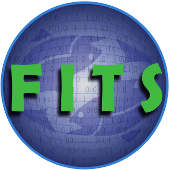FITS is excited to be a part of another symposium to be presented at the AFS/TWS Meeting in Reno!
Sponsored by the AFS FITS, Fish Culture, Marine Fisheries, and Fisheries Management Sections; the TWS Spatial Ecology and Telemetry working group; and the American Institute of Fishery Research Biologists, this symposium promises to be outstanding!
UPDATE: The symposium will be presented in THREE parts on Monday-Wednesday. See the full schedules here:
- Part 1: https://afstws2019.org/sessions/marking-tagging-and-tracking-of-fish-and-wildlife-part-i/#
- Part 2: https://afstws2019.org/sessions/marking-tagging-and-tracking-of-fish-and-wildlife-part-ii/
- Part 3: https://afstws2019.org/sessions/marking-tagging-and-tracking-of-fish-and-wildlife-part-iii/
Fish and wildlife tracking data inform how individual organisms and populations distribute locally, utilize habitat, migrate over larger scales, and evolve over time. Technological advances in tracking systems ignite the development of new questions about the ecology of species where previous tools did not exist to address them. Analyzed carefully, tracking data may indicate changes in climate and land use, biodiversity, invasive species, predict spread of diseases or parasites, and correspond to effectiveness of stocking efforts.
Tracking measures include utilization of physical marking tags, light-level geolocators, acoustic, radio, satellite, and GPS that enable investigation of spatial ecology and behavior of a variety of terrestrial, aerial and aquatic species. Tagging methods vary by size, price, memory and power capacity, scale, and ease of use.
Successful marking and tracking approaches not only involve proper tagging and placement of monitors to detect movements, but also require robust analyses and effective communication of large datasets. This symposium will share technologies, methodologies, findings, analytical approaches, and troubleshooting tips across a broad array of species and objectives to highlight more recent developments and encourage collaboration. We ask that authors submit papers revolving around one or more of the following topics:
- Description of novel tagging methods or monitoring approaches
- Description of novel combinations of technologies for improved data quality or quantity, including metadata collection
- Connection of tracking data to environmental data, such as climate, habitat, or water quality
- Explanation and demonstration of useful software for tracking data management and analysis
- Explanation and demonstration of robust analytical approaches used with tracking data
- Application of tracking data to inform decision-making processes in fish or wildlife policy
Abstracts for presentations are solicited from policy and management agencies, fish and wildlife industries, non-governmental organizations, technology-partners, research institutions, citizen-scientists, academia (including students), and other stakeholders.
To submit a paper to this symposium, select Symposium #8044 from the symposium dropdown. Remember, abstracts are due April 12, 2019!
Tagged Under: abstract, annual meeting, call for papers, data analysis, data quality, marking, software, submission, symposium, tagging, tracking

